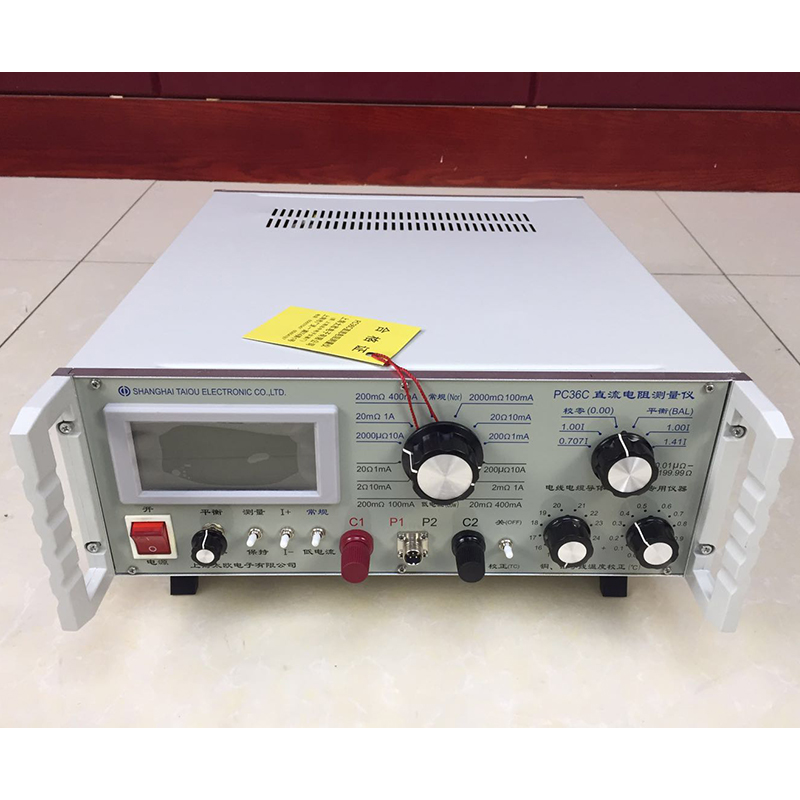Electrical Resistance Testing Solutions for Reliable Performance Measurement and Assurance
Understanding Electrical Resistance Testers A Key Component of Modern Electrical Safety
In today's world, where electrical systems are integral to daily life, ensuring their safety and reliability is paramount. One of the essential tools in achieving this is the electrical resistance tester. Companies specializing in the production of these devices play a crucial role in the maintenance and safety of electrical systems. This article explores the importance of electrical resistance testers, how they work, and their significance in various industries.
What is an Electrical Resistance Tester?
An electrical resistance tester, commonly referred to as a megohmmeter or insulation resistance tester, is a device used to measure the resistance of electrical insulators and the integrity of electrical systems. This tool is essential for diagnosing problems in equipment, detecting potential failures, and ensuring compliance with safety standards.
Typically, these testers inject a high voltage, usually between 250V and 1000V, into the insulation of cables or electrical components. By measuring the amount of current that flows through the insulation, the tester can determine its resistance value. A higher resistance indicates better insulation quality, while lower resistance may signal insulation breakdown or deterioration.
Importance of Electrical Resistance Testing
The importance of electrical resistance testing cannot be overstated. Electrical failures can lead to catastrophic consequences, including fires, equipment damage, and even loss of life. By using resistance testers, companies can mitigate these risks through regular assessments.
1. Preventive Maintenance Regular testing can identify potential issues before they lead to significant failures. Scheduled inspections using resistance testers can help companies create a consistent maintenance schedule, ensuring that problems are addressed promptly.
2. Compliance with Standards Many industries are subject to strict safety regulations concerning electrical systems. Using proper testing equipment helps companies comply with these standards, reducing legal liabilities and ensuring worker safety.
3. Equipment Lifespan By monitoring the health of electrical insulation, companies can extend the lifespan of their equipment. Early detection of issues allows for timely repairs, reducing the costs associated with equipment replacement.
4. Safety Assurance In environments where employees work with electrical systems, ensuring safety is crucial. Regular testing provides assurance that the systems are functioning correctly and reduces the risk of electrical hazards.
Industries That Rely on Electrical Resistance Testers
Various industries benefit from the use of electrical resistance testers
. Some of the key sectors includeelectrical resistance tester company

- Manufacturing In manufacturing facilities, machinery relies heavily on electrical systems. Regular testing helps prevent machinery breakdowns, ensuring optimal production levels.
- Construction Electrical installations in construction sites must meet safety standards. Testing ensures that installations are safe for future use.
- Telecommunications Communication networks depend on reliable electrical systems. Testing helps maintain the integrity of these systems, minimizing downtime.
- Energy Production Power plants and renewable energy installations must monitor their electrical systems continuously. Resistance testing is vital to ensure efficient and safe energy production.
- Transportation In the transportation sector, electrical systems in vehicles and infrastructure must be fail-safe. Testing ensures that these systems perform reliably under various conditions.
Choosing the Right Electrical Resistance Tester
When selecting an electrical resistance tester, several factors should be considered, including
- Voltage Levels Consider the voltage requirements of the systems you will be testing. Different applications may require testers that can handle varying voltage ranges.
- Accuracy and Precision Look for testers that provide accurate readings to ensure reliable diagnostics.
- User-Friendliness A straightforward user interface can improve efficiency in testing, reducing the learning curve for new operators.
- Durability and Portability Since these tests can be conducted in various environments, consider the durability of the device and its ease of transport.
Conclusion
In summary, electrical resistance testers are indispensable tools in ensuring the safety and reliability of electrical systems across various industries. Companies that specialize in these testers play a crucial role in protecting infrastructure, reducing risks, and extending the lifespan of electrical equipment. As technology advances, these testers will continue to evolve, providing even more accurate and efficient ways to monitor electrical systems and promote safety in our increasingly electrified world. Ensuring the integrity of electrical systems is not just a regulatory requirement; it is a moral imperative to protect lives and property.
-
Why the Conductor Resistance Constant Temperature Measurement Machine Redefines Precision
NewsJun.20,2025
-
Reliable Testing Starts Here: Why the High Insulation Resistance Measuring Instrument Is a Must-Have
NewsJun.20,2025
-
Flexible Cable Flexing Test Equipment: The Precision Standard for Cable Durability and Performance Testing
NewsJun.20,2025
-
Digital Measurement Projector: Precision Visualization for Modern Manufacturing
NewsJun.20,2025
-
Computer Control Electronic Tensile Tester: Precision and Power for the Modern Metal Industry
NewsJun.20,2025
-
Cable Spark Tester: Your Ultimate Insulation Assurance for Wire and Cable Testing
NewsJun.20,2025
 Copyright © 2025 Hebei Fangyuan Instrument & Equipment Co.,Ltd. All Rights Reserved. Sitemap | Privacy Policy
Copyright © 2025 Hebei Fangyuan Instrument & Equipment Co.,Ltd. All Rights Reserved. Sitemap | Privacy Policy
